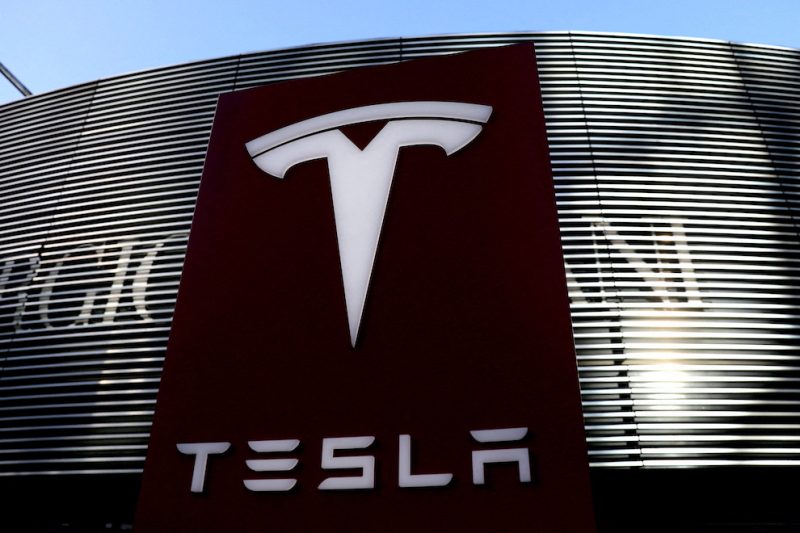Tesla is looking at exporting made-in-China electric cars to the United States, in what could be a politically contentious move for the American EV giant.
Until now, Tesla’s strategy has been to build the cars it sells in North America at its plants in Fremont, California, and Austin, Texas.
But sources claim Elon Musk’s firm is looking at exploiting the automaker’s deepening cost advantage at its Shanghai plant and slower demand from Chinese consumers.
Also on AF: Hang Seng Leads Asia Shares Surge on China Covid Hopes
Tesla has been studying whether parts made by its China-based suppliers are compliant with local regulations in North America, and if they are, could ship China-made Model Y and Model 3 cars for sale there as soon as next year, said the sources
That could also open a channel for exports to Canada, one of the people said.
Tesla did not immediately respond to a request for comment.
Tesla’s Shanghai Gigafactory has the capacity to produce 1.1 million electric vehicles per year after an upgrade earlier this year, making it Tesla’s most productive manufacturing hub.
The Shanghai plant makes Model 3 sedans and Model Y crossovers to sell in China and for export to markets including Europe, Australia and South East Asia.
Until recently, Tesla had been selling, or shipping for export, every vehicle it could produce in Shanghai, but inventory levels rose by their largest margin ever in October, according to data from brokerage CMBI.
In addition, factors including a cheaper yuan against the US dollar, lower raw material prices in China and the rise in Tesla and new-car prices in the United States have combined to make exports from China to the United States potentially now cost competitive, it’s claimed.
Biden’s Inflation Reduction Act
The plan, if enacted, could create new complexity for US buyers. Under the terms of a new electric-vehicle subsidy and production-incentive plan signed into law by US President Joe Biden, the incentive available for an individual vehicle could vary depending on whether it was imported.
It could also be politically difficult. Tesla has been widely seen as one of major beneficiaries of the Biden administration’s Inflation Reduction Act (IRA), which offers rebates of up to $7,500 on EV purchases as part of a law intended to push automakers to reduce their reliance on China.
Tesla Chief Financial Officer Zachary Kirkhorn told investors last month that the automaker was “very well-positioned to capture a significant share” of the incentives offered under the IRA for EVs and batteries for energy storage.
The California plant, Tesla’s first, produces the Model S, the Model 3 sedans and the Model X and Model Y crossovers. The Texas plant, which opened earlier this year, makes the Model Y and will produce Tesla’s upcoming Cybertruck.
Tesla is also ramping up production at a plant it opened in Berlin earlier this year. Output from the Berlin plant will reduce the need for some exports from China, one of the sources said.
At the same time, the price gap between Tesla cars sold in China and the United States has been widening, reflecting both higher US prices and new discounts in China.
In China, where CMBI analysts have warned of a coming “price war,” Tesla slashed the starter prices for Model 3 and Model Y in China by as much as 9% last month.
China’s Auto Import Tariff
On Monday, it offered an additional rebate for buyers who take delivery this month and buy insurance from one of Tesla’s partners.
Tesla sells the Model Y for the equivalent of $49,344 in China, compared to the US price of $65,990. China-made cars face a 27.5% US tariff, while light-duty trucks face a 25% tariff.
China, the world’s largest auto market, imposes a 15% tariff on imported vehicles.
In 2018, before Tesla’s Shanghai plant was operating, Chief Executive Elon Musk had asked then-President Donald Trump to raise tariffs on cars imported to the United States from China in order to achieve “a fair outcome” where both sides had equivalent and “equally moderate” tariffs.
Tesla would not be the first US automaker to ship made-in-China vehicles to the United States. General Motors has imported the Buick Envision SUV and unsuccessfully petitioned for an exemption to 25% US tariffs imposed by the Trump administration.
- Reuters with additional editing by Sean O’Meara
Read more:
Tesla’s Shanghai Inventory Builds as EV Recession Looms
Tesla Boosts Insurance Incentive in China to Lift Purchases
Tesla Ships 11,400 Fewer China-Made EVs in October
























